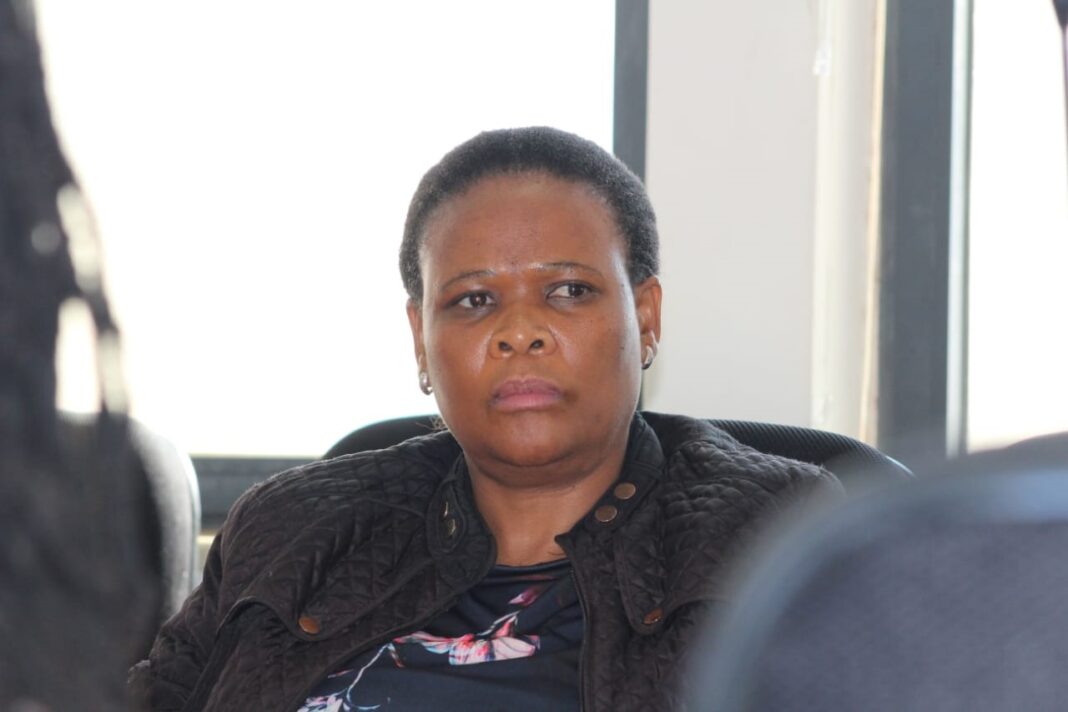Ntsoaki Motaung
Two months later the fate of the National Health Training College (NHTC) remain unclear.
Both the institution’s management and the Health Ministry were unable to convince the National Assembly’s Social Cluster of the amicable solution to reopen the school which was shut down in March amid protests.
On May 1, when the management had planned to resume work and welcome first year students, lectures downed tools demanding teaching aid, including laptops among a myriad of their demands.
First the students funded by the National Manpower Development Secretariat (NMDS) stormed into a hall filled with interviewers and interviewees and started assaulting people and damaging protest.
The students’ protest was fuelled by late release of their monthly allowance. The police were called to the scene, and subsequently the school was indefinitely suspended.
When appearing before the social cluster recently, ‘Malefela Lehana, HHTC’s director-academic, told the committee that the college has since been closed on March 22, this year, “after students embarked on a violent strike demanding their monthly allowances from the National Manpower Development Secretariat.â€
NMDS is a government department under the ministry of finance and development planning mandated through the National Manpower Development Council Act of 1978 to provide loan bursaries to deserving Basotho students pursuing higher education and training.
NMDS specifically administers partially reimbursable loan bursaries on behalf of the government for students pursuing priority fields of study at tertiary and vocational schools locally, regionally and internationally.
Lehana narrated to the portfolio committee that on March, “…the striking students stormed into a hall and found people who had come for interviews seated.
“When they entered the hall, they started pouring the interviewers and interviewees with water and assaulted them. From there, they proceeded the lecture halls where they continued assaulting both students and lecturers. They also destroyed some of the furniture and insulted lecturers.â€
Lehana continued that only after police were called to manage and control the protest that students settled and eventually left.
“It was at that time that the management decided to suspend classes because, apart from the destruction of property, some lecturers were still afraid that the students might embark on another violent protest in the near future.â€
She revealed that the decision was to suspend the school with a hope to reopen on May 1 “to pave way for first year students, and to welcome returning students to the new academic year, but, on the same day that we were expecting to welcome first-year students, lectures downed tools, also went on a protest demanding teaching equipment such as laptops among other things.â€
This publication earlier in the year reported that a crisis was looming for NHTC.
This was after the then ministry of health’s Principal Secretary (PS), ‘Maneo Ntele, and Lehana initially list a myriad of challenges the college was faced with before the same portfolio committee.
The duo stressed that NHTC “Finds itself in a tight spot due to the limitations set by the government on how the college handles its business and organises its internal decision-making.
The pair pushed for the institution to be independent.
Currently, NHTC exists as merely a department of the ministry of health.
It, therefore, does not have the authority to determine its own programmes and strategic plan and allocate its own resources internally.
The chairman of the portfolio committee on the social cluster, Makhalanyane Mokhothu, concluded that the only solution to the institutions’ challenges was to grant it its autonomy.
In the meantime, Mokhothu said it was necessary for all parties involved to collaborate and agree on when classes would resume while a permanent solution for other issues is being pursued.
“The ministry of health has to ensure that NHTC is autonomous so that it can run its operations, hire its staff and buy its equipment, but in the meantime, the school needs to open,†he said.
“The committee had already resolved that processes leading to the independence of the school be started. We are hopeful that the ministry has something to give as a progress report on that matter,†he added.
The acting PS, ‘Mantšoanelo Monyobi, then told the committee that the memorandum by the ministry to the cabinet (to make NHTC independent) had already been submitted to the cabinet and was approved.
“The memorandum was submitted to the cabinet and it was approved. At the moment, the process of drafting the law has started,†she said.
Monyobi said the ministry of health was aware of the lecturer’s strike at NHTC demanding laptops.
“We will not only be relying on the ministry budget to get those laptops but the ministry is also seeking help from its partners and letters have been sent to those partners for help,†she said.
NHTC was established by the National Health Training College Order number two of 1992 to encourage and provide education in the field of health for present and future members of the health profession “and to such other persons as the Board may determine.â€
It was established to also provide facilities for and undertake (relevant) research.




